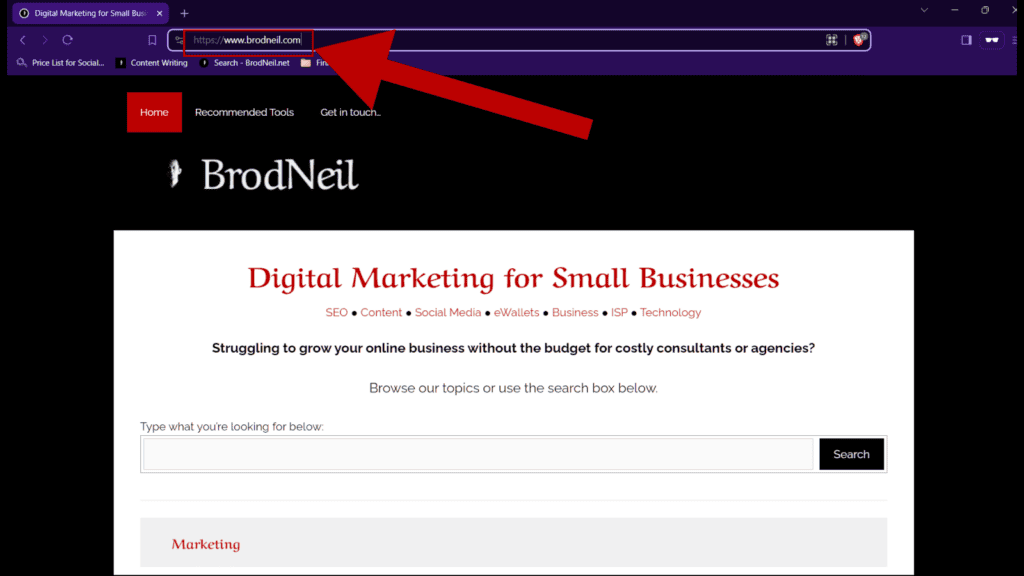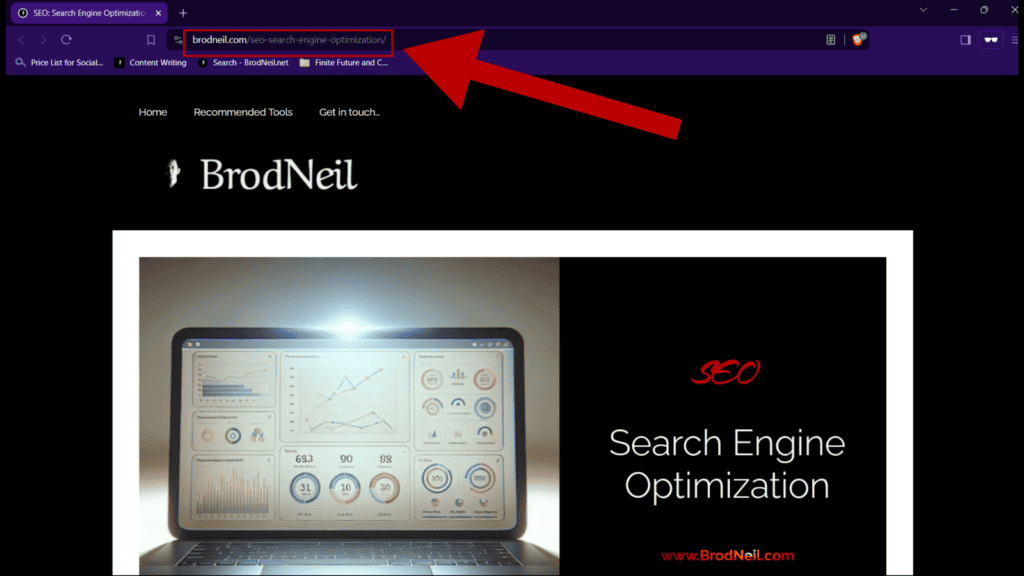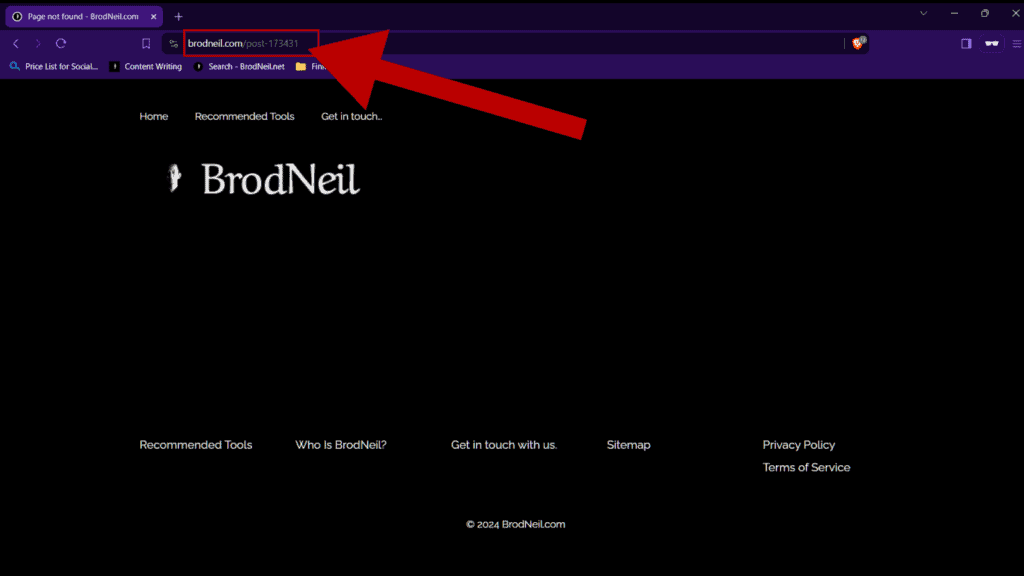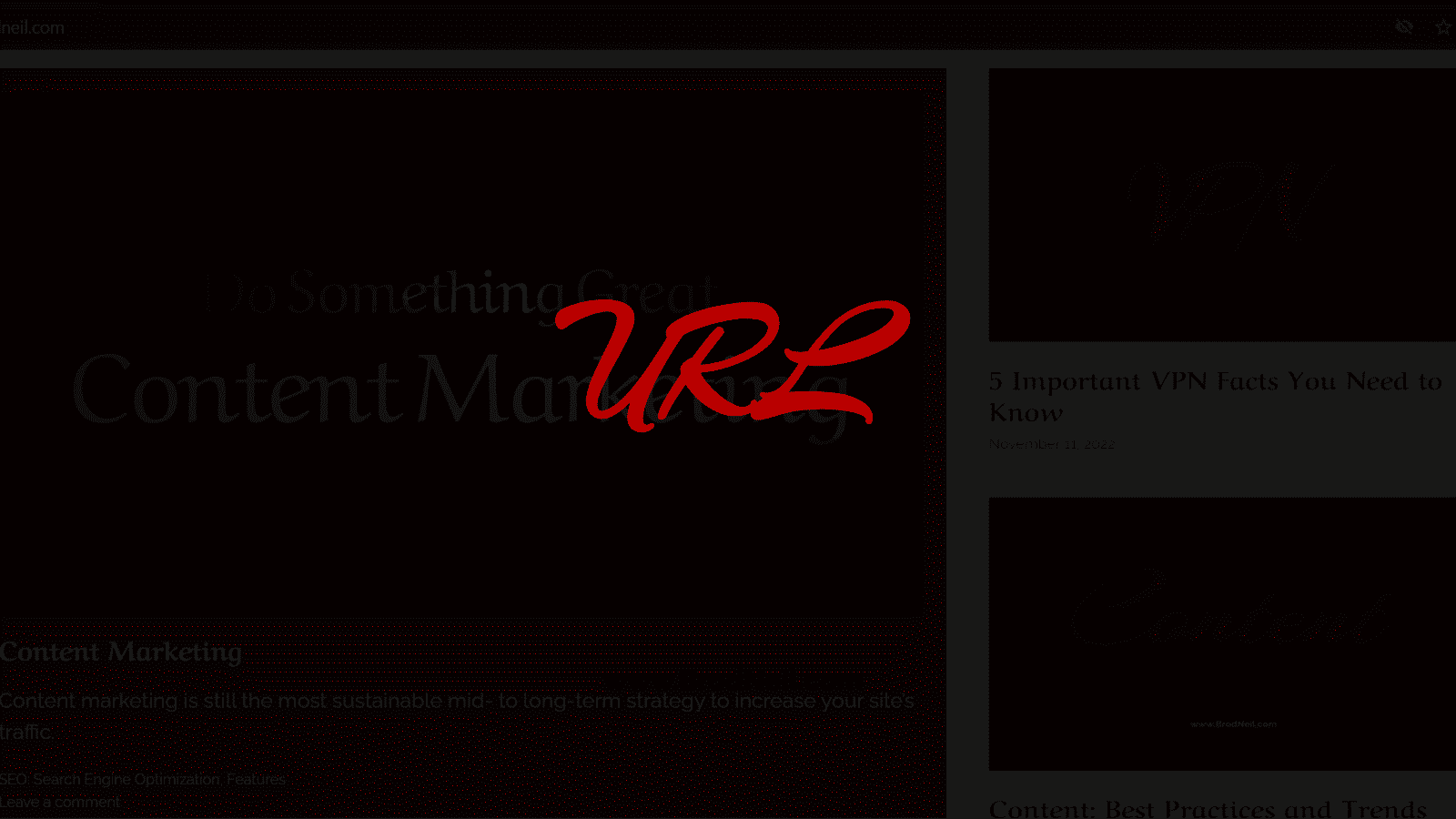A URL, or Uniform Resource Locator, is a string of characters that identifies a specific resource on the internet. This resource could be a webpage, an image, a video, or any other type of digital content. The URL consists of several parts, including the protocol, the domain name, and the path to the resource.
What Is a URL Slug?
A slug is a part of the URL that normally or ideally provides an easy-to-read description of a website’s page and its content.
Let me give you an example of what a slug is.
- This is a complete URL of a specific post: https://www.brodneil.com/urls/
- This is the URL’s domain or homepage: https://www.brodneil.com
- This is the slug: /urls/
Domain or Homepage URL

URL for a Specific Post
The URLs of a specific post will normally have a slug.

What Is the Significance of a URL?
The significance of URLs lies in their ability to uniquely identify digital resources on the internet. When a user types a URL into their web browser, the browser sends a request to the server hosting the resource identified by the URL. The server then responds with the resource, allowing users to view or interact with it.
What Impact Does It Have on Businesses?
For businesses, URLs play a crucial role in online marketing and branding. A well-crafted URL can help businesses attract and retain customers by making it easier for them to find and access the business’s website or digital content. Here are some ways that URLs impact businesses:
Branding
URLs can be used to reinforce a business’s brand identity. Businesses can create a strong online presence by choosing a memorable and relevant domain name that helps them stand out.
Search Engine Optimization (SEO)
URLs can have a significant impact on a website’s SEO performance. By incorporating relevant keywords into the URL structure, businesses can improve their search engine rankings and attract more organic traffic to their website.
Using Relevant Keywords (search engine optimized URL) vs. Using Post IDs (non-SEOd URLs)


Different Ways on How to Create URLs for Specific Posts/Pages
There are various methods to create a URL, particularly the slug.
Let’s take this post as an example:
- URL: https://www.brodneil.com/urls/
- Main Heading or H1: Everything about URLs: Best Practices
- Title Tag or SEO Title: URL Best Practices: A Comprehensive Guide
Let me show you 3 usual approaches:
- Use the main heading, usually the H1, as the slug.
- An example would be https://www.brodneil.com/everything-about-urls-best-practices/
- Use the SEO title or title tag as the slug.
- An example would be https://www.brodneil.com/url-best-practices-a-comprehensive-guide/
- Use the keyword as the slug.
Why Use the Keyword as the Slug?
As I may have mentioned before, SEOs can approach this differently. However, I prefer to use the keyword as the slug.
I want to maintain the current URL and slug even after updating the content in the future. This aligns with my intention to keep my content updated, fresh, or evergreen as time passes.
Let’s take the example of a post titled: 5 Best Practices to Optimize your URLs in 2024. The URL will be https://www.brodneil.com/5-best-practices-to-optimize-your-url-in-2023/.
What if I decided to add 2 more best practices and thus change the title to 7 Best Practices to Optimize your URLs in 2023, will this entail that I have to change the slug and then do a 301 redirection to make sure it is still search engine optimized?
What if I decided to update this to 2024, will this mean that I have to change the slug from 2023 to 2024 and again do a 301 redirection?
Therefore, I believe that utilizing the primary keyword as the slug would benefit me in the long term. This allows me to easily update my SEO title, heading, and content, as long as it remains focused on the primary keyword. In the given example, the primary keyword is “URLs”.
Link Building
URLs are often used as the anchor text in hyperlinks. By creating high-quality content with relevant URLs, businesses can attract inbound links from other websites, which can boost their SEO performance and drive more traffic to their site.
Analytics and Tracking
URLs can be used to track user behavior and measure the effectiveness of marketing campaigns. By using unique URLs for different marketing channels or campaigns, businesses can track the source of their website traffic and analyze user behavior to optimize their marketing strategies.
Google Advises Not to Change Urls for Seo Reasons, but There Are Exceptions
In some cases, changing URLs may do more harm than good. However, there are three important reasons that it may be okay to change URLs – findability, usability, and shareability.


